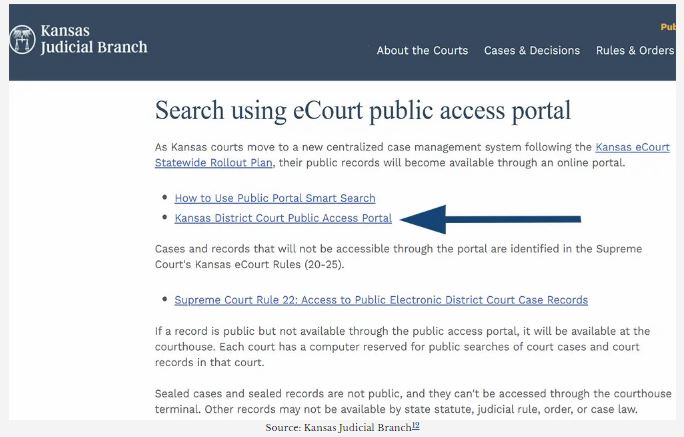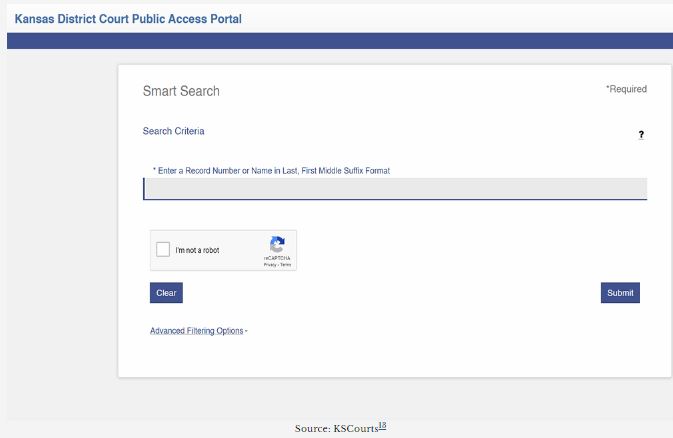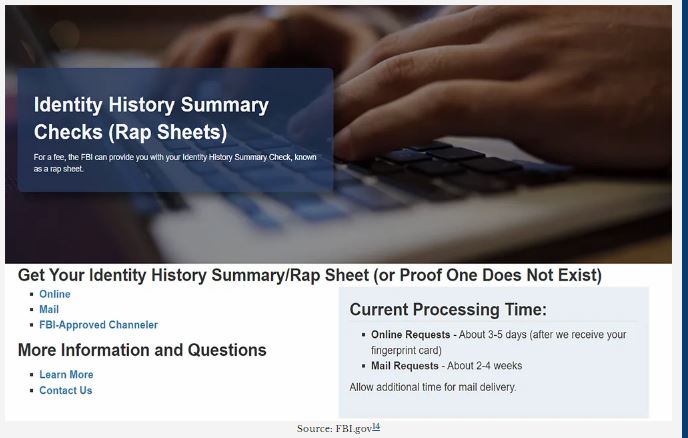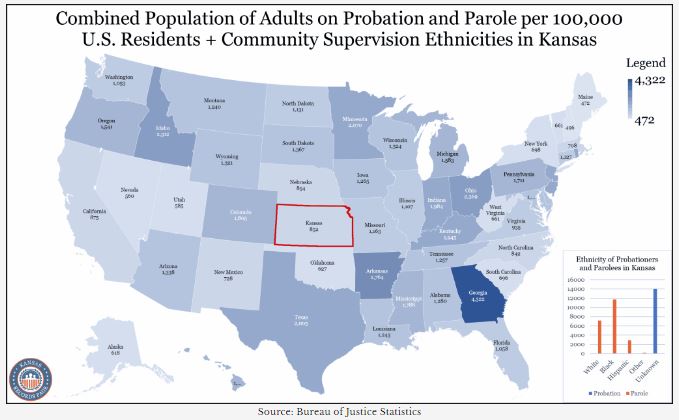Kansas Arrest Records – Search and Find on Arrests.org KS
Arrest records serve as vital resources in law enforcement and legal proceedings, offering valuable insights into an individual’s interactions with the criminal justice system. In Kansas, accessing these records is facilitated through two main channels: the Kansas Bureau of Investigation (KBI) and the county sheriff’s offices. Whether seeking information on past encounters with the law or conducting background checks, individuals can navigate these avenues to obtain comprehensive arrest records. The Kansas Bureau of Investigation serves as a centralized hub for statewide inquiries, while county sheriff’s offices provide localized access, ensuring convenient and efficient retrieval of essential information for various purposes.

Submit a Request Form to the KBI
Interested parties seeking to obtain an arrest record from the KBI are required to complete and submit a request form. These forms are available for download on the KBI website or can be obtained in person from their office, ensuring accessibility and convenience for individuals seeking essential information.
Pay the Required Fee
The cost associated with obtaining an arrest record may vary depending on the type of record check requested. It is advisable to check the current fee schedule on the KBI website.
Request a Record Check
Once the request form is completed and the fee is paid, you can submit your request for a record check to the KBI. This process is designed to ensure transparency and ease of access.
Accessing County Sheriff’s Office Records
In addition to the KBI, each county sheriff’s office in Kansas maintains its own set of arrest records for incidents within their jurisdiction. To access these records:
Contact the Sheriff’s Office
Reach out to the specific county sheriff’s office to obtain an arrest record. Contact information for each county’s sheriff’s office can usually be found on the official county website.
Inquire About Fees
Be aware that county sheriff’s offices may charge a fee for providing arrest records. Inquire about any associated costs during your initial contact with the office.
Important Considerations
When dealing with arrest records in Kansas, it is essential to keep the following points in mind:
- Arrest records in Kansas are considered public records, accessible to anyone who requests them, promoting transparency and accountability in the criminal justice system.
- An arrest record does not equate to a criminal conviction; it signifies that an individual was taken into custody by law enforcement. The outcome of legal proceedings can vary.
- Depending on the circumstances and applicable laws, some arrest records in Kansas may be eligible for expungement or sealing, providing individuals with a fresh start.
Is Criminal Record and Arrest Information Public in Kansas?
Under the Kansas Open Records Act (KORA), arrest and criminal records are typically accessible to the public, with certain exceptions such as confidential informants’ identities, juvenile records, and information that could interfere with law enforcement activities or case prosecution.
The Fair Credit Reporting Act imposes a seven-year lookback limitation on credit history and specific criminal records for commercial background checks.
Kansas statute 50-704 also imposes a seven-year lookback period on Kansas criminal records for jobs paying under $20,000 per year, with longer lookback periods for higher-paying positions.
Compliance with anti-discrimination laws, as enforced by the Equal Employment Opportunity Commission (EEOC), is important when conducting background checks on employees.
Understanding Kansas Arrest Records and Criminal Records
When it comes to conducting a thorough background check in Kansas, it’s important to distinguish between arrest records and criminal records. While these terms are often used interchangeably, they provide different sets of information.
Arrest records primarily reveal details about an individual’s detention by a state law enforcement agency. This includes the date of the arrest and the associated criminal charges. However, it’s crucial to note that arrest records do not indicate the final outcome of the case or whether the person was found guilty or not guilty.
On the other hand, criminal records offer a more comprehensive account. They encompass information about the arrest, the charges filed (which may differ from the initial cause of the arrest), and the ultimate resolution of the case. This includes dismissed or dropped charges, acquittals, guilty pleas or verdicts, and any related sentencing information.
Finding Recent Arrests and Jail Detention Reasons
To find recent arrest records or understand why someone is in jail, it’s essential to consider the four W’s:
- Who: You need the full name of the person arrested, but at least the last name is required for a search.
- What: Knowing the charges against the person helps determine if it typically results in an arrest or a summons.
- Where: You must know the Kansas county where the person was taken into custody to determine where to search for records.
- When: The date of the arrest is crucial. Depending on the timing, the person may still be in jail or may have already posted bond.
Taking these factors into account will help you determine if someone is in police custody and guide you through the process of posting their bond if necessary.
Searching for Arrest Records in Kansas City Jails
When individuals are arrested by municipal law enforcement in Kansas, they are usually taken to the nearest county detention facility for pretrial confinement. For example, if someone is arrested in Wichita, Kansas, they would typically be taken to the Sedgwick County Jail. To find information on inmates in county jails, you can use online tools or contact the county Sheriff’s office directly.
Accessing Public Arrest Records Statewide in Kansas
Statewide criminal records in Kansas can be obtained through the Kansas Bureau of Investigation (KBI). By requesting a background check through KBI, you can access information about misdemeanor and felony convictions, municipal ordinance violations, Department of Corrections confinements, and arrests from the previous year, even if no disposition has been entered. To obtain these records, you need a KanAccess account and must pay a $20 fee per report.
Another option for accessing criminal records is the Kansas Office of Judicial Administration. However, it’s important to note that not all counties upload their information to this source, so it may not provide a complete criminal history. Each search through this source costs $1.50, and payment can be made online using a card.
Obtaining Criminal Records Through the Court System
For a person’s complete criminal history within the state of Kansas, the courts are one of the most reliable sources. Since all convictions involve a hearing and a decision by a judge or jury, the courts maintain in-state criminal history reports.
To search for criminal records, you can use the County Clerk of Court Case Access portal. Additionally, each clerk of court’s office provides public terminals where individuals can search Kansas criminal records free of charge. However, it’s important to note that disposition information is currently only available at the clerk’s office.
Searching for State Court Records Through Kansas Judicial Branch
The Kansas Judicial Branch provides an online search portal called the Kansas Judicial Branch Case Management System. This portal allows you to find records related to court cases. If case information cannot be found through the online portal, you can visit the nearest courthouse and use the public terminal maintained by the clerk’s office. Some public records must be searched at the courthouse and cannot be placed in the centralized system.

Keep in mind that the information provided by the online portal includes details about the type of charge (infraction, traffic, misdemeanor, or felony), court location, and defendant’s birth year but does not display disposition information.

Obtaining Official Criminal Records in Kansas
For official Kansas criminal records, you must go through the Kansas Bureau of Investigation (KBI). KBI offers an online access portal for authorized users to conduct official name-based statewide searches. To access this service, you need a KanAccess account available on the state’s official government website. The cost for a statewide background check is $20 per person searched, payable by debit or credit card at the time of the request.

If a fingerprint-based background check is required, you must submit an official set of fingerprints to the Kansas Bureau of Investigation for processing. You can have your fingerprints taken at any local police station or sheriff’s office, although there may be a fee for this service. After obtaining the fingerprints, mail them to the address below, along with $35 to cover the fees:

KBI (Kansas Bureau of Investigation) Attention: Criminal History Records Department 1620 Southwest Tyler St. Topeka, Kansas 66612-1837
This background screening encompasses both state and national records, including an FBI background check. It will reveal all convictions, whether misdemeanor or felony, and may include information on sentencing and arrest records in Kansas.
Locating Individuals on Probation or Parole in Kansas
Convictions do not always lead to prison sentences; many individuals are placed on probation or released on parole. The Kansas Department of Corrections maintains records for individuals in various stages of the criminal justice system.

You can conduct an online search based on the offender’s name or KDOC inmate number to access information about individuals in state prisons, on parole, or under supervised probation. The search results include details such as full name, aliases, KDOC number, photo, birthdate, demographics, current status (incarcerated, on parole, on probation, or released/discharged), convictions resulting in DOC involvement, location history, rehabilitation program completion, and infractions during incarceration.

It’s important to note that these records do not include convictions leading to unsupervised probation or fines only. Additionally, records that have been sealed or expunged from a person’s record are not included.
Sealing or Expunging Criminal Records in Kansas
Sealing a record removes it from public records, while expungement erases the matter entirely in most cases. To expunge a record in Kansas, it must meet the criteria outlined in Statute 21-6614, which specifies eligible convictions, waiting periods before expungement, and the process.
In Kansas, there is a waiting period of 5 to 10 years before a person can petition the court for expungement. A five-year wait applies to first-time convictions of crimes (except those explicitly excluded from expungement), while a ten-year wait applies to second or subsequent convictions (excluding those specifically excluded).
Expungement cannot be requested for convictions of violent felonies, such as homicide, sexual assault, or cases involving abuse or exploitation of minors.
Step-by-Step Instructions for Expunging Arrest Records in Kansas
In order to expunge arrest records in Kansas, it is important to understand the legal intricacies and motivations behind record checks. Under Statute 22-2410, individuals have the right to petition for expungement if their case resulted in a non-conviction, such as dismissal, dropped charges, or acquittal in court. This process requires meticulous attention to detail and adherence to the necessary steps.
To guide you through the expungement process, we have outlined the necessary steps below:
Determine Eligibility
Before proceeding with the expungement process, it is essential to determine if you are eligible. Expungement is only available for cases that resulted in a non-conviction, including dismissal, dropped charges, or acquittal in court. Additionally, cases of mistaken identity may qualify for automatic expungement once the mistaken identity is established.
Prepare the Petition
Once eligibility is confirmed, the next step is to prepare the expungement petition. This document should include all relevant information about the arrest, including the case number, date of arrest, charges filed, and the outcome of the case. It is crucial to provide accurate and complete information to ensure a successful expungement.
File the Petition
After preparing the petition, it must be filed with the appropriate court. In Kansas, the petition should be filed in the district court where the arrest took place. It is important to follow the court’s specific procedures and guidelines for filing expungement petitions. This may include submitting additional documents or paying filing fees.
Attend the Hearing
Once the petition is filed, a hearing will be scheduled. During the hearing, the petitioner will have the opportunity to present their case and explain why the arrest record should be expunged. It is important to be well-prepared for the hearing and provide any necessary evidence or supporting documentation.
Await the Court’s Decision
After the hearing, the court will review the petition and any evidence presented. They will then make a decision regarding the expungement of the arrest record. It is important to note that the court’s decision is final and cannot be appealed.
Following these step-by-step instructions, individuals can navigate the expungement process in Kansas with confidence. It is crucial to approach the process with a thorough understanding of the legal requirements and to seek professional guidance if needed.
Locating State Prisoners and Federal Inmates in Kansas
When it comes to locating state prisoners and federal inmates in Kansas, utilizing the right resources is essential. The following tools can help you in your search:
KASPER (Kansas Adult Supervised Population Electronic Repository)
KASPER is a valuable tool for finding prisoners in Kansas state prisons. By searching with a person’s first or last name, aliases, or KDOC number, you can access information about individuals incarcerated in state facilities. This tool may also provide photos or mugshots when available, enhancing the search experience.
United States Bureau of Prisons Online Search Portal
The United States Bureau of Prisons maintains a facility in Leavenworth, Kansas, which houses approximately 1,700 inmates. To locate inmates in federal facilities, you can use the Bureau of Prisons’ online search portal. By searching with an inmate’s name or BOP number, you can access information such as their full name, age, race, sex, location, and projected release date. However, it is important to note that this information does not include details about the person’s charges or convictions.
By utilizing these resources, you can efficiently locate state prisoners and federal inmates in Kansas for various purposes, including research or personal inquiries.
Accessing Arrest and Bench Warrant Information in Kansas
When it comes to accessing information about active arrest and bench warrants in Kansas, there are certain considerations to keep in mind:
PACER (Public Access to Court Electronic Records)
PACER is a valuable resource for accessing federal criminal records filed after November 1, 2004. While access to specific federal criminal records is feasible through PACER, warrants typically remain confidential until resolved by a federal judge. Keep in mind that registration and a small fee are required for accessing federal records through PACER.
Kansas House Bill 2389
Kansas House Bill 2389 imposes restrictions on revealing sworn testimony about active arrest and bench warrants until after their execution. However, the actual warrant may be disclosed to the public beforehand. The discretion of divulging warrant information lies with law enforcement agencies, as arrest records are categorized as public records and play a vital role in criminal history inquiries.
By understanding these legal considerations and utilizing the available resources, individuals can navigate the process of accessing arrest and bench warrant information in Kansas.
Utilizing the Kansas Sex Offender Registry
The Kansas Sex Offender Registry is a powerful tool for locating and accessing information about registered sex offenders in the state. By performing a name-based search on the Kansas Public Offender Registry, individuals can access comprehensive information about sex offenders, including their convictions, mugshots, aliases, demographics, last known location, and details about their conviction. This information includes charges, level of the crime, court of jurisdiction, offense date, and conviction date.
In addition to the Kansas Sex Offender Registry, individuals can also search for Kansas offenders through the Dru Sjodin National Sex Offender Registry, which redirects to the Kansas website. Furthermore, Kansas maintains a database for individuals at risk of prescription substance abuse.
By utilizing these resources, individuals can stay informed and take necessary precautions to ensure their safety and the safety of their communities.
Monitoring Prescription Drug Abuse with K-TRACS in Kansas
K-TRACS is a State of Kansas-managed system designed to assist healthcare professionals, such as doctors and pharmacists, in monitoring individuals who have been flagged as potential prescription drug abusers. While this database is not accessible to the general public, it plays a crucial role in background screening procedures for individuals employed within the medical field in Kansas, including pharmacists.
It is important to note that any queries conducted on Kansas criminal records must adhere to both state and federal laws, as well as the policies set forth by the relevant agencies. By understanding and respecting these legal considerations, individuals can access the necessary information while maintaining compliance with applicable regulations.
Understanding Arrest Records in Kansas
Background checks can be conducted on individuals with or without their knowledge or consent. However, professional background checks for employment, tenant screening, or licensure must comply with both state and federal laws.
The Fair Credit Reporting Act (FCRA) places restrictions on lookback periods for credit history and provides guidance on criminal history checks. Employers are required to inform individuals when information obtained may be used in the hiring decision. FCRA also limits the lookback period for non-convictions to seven years.
The Equal Employment Opportunity Commission (EEOC) enforces federal anti-discrimination laws to prevent the illegal use of criminal history to discriminate against otherwise qualified candidates based on protected class status.
Under the Kansas Open Records Act (KORA), adult criminal records are generally public records unless sealed or expunged by the court. Juvenile records are automatically sealed and cannot be included in background checks.
Executive Order 18-12, signed by the Kansas governor, provides “ban the box” protections for state employees, meaning inquiries about criminal history cannot be made until after an interview has been scheduled. This applies to most positions except those where a criminal record alone would automatically disqualify an applicant, such as public safety positions.
Frequently Asked Questions (FAQs)
How can I obtain a copy of my own arrest record in Kansas?
To obtain a copy of your own arrest record in Kansas, you can request it from the Kansas Bureau of Investigation (KBI) or the law enforcement agency that made the arrest. Typically, you will need to fill out a specific request form and may be required to pay a processing fee, if applicable. It’s important to provide accurate details such as your full name, date of birth, and the date of the arrest to facilitate the search and retrieval process. Be prepared to verify your identity as well.
Are arrest records in Kansas public information?
Yes, arrest records in Kansas are generally considered public information, which means they are accessible to the general public. However, certain sensitive details within these records, such as juvenile arrests or sealed records, may be restricted from public access. In most cases, you can access arrest records by contacting the Kansas Bureau of Investigation (KBI) or the specific law enforcement agency that handled the arrest.
How can I access someone else’s arrest records in Kansas?
Accessing someone else’s arrest records in Kansas typically requires a legitimate reason, like conducting a background check for employment or legal purposes. You can request these records from the relevant law enforcement agency or the Kansas Bureau of Investigation (KBI). Ensure you have proper identification and provide a valid reason for requesting the information, as access to someone else’s arrest records is subject to certain privacy regulations.
What information is typically included in a Kansas arrest record?
A Kansas arrest record typically contains essential information such as the individual’s full name, date of birth, a photograph or mugshot, date of arrest, details of the charges filed, the name of the arresting officer or agency, and information on any court proceedings related to the arrest. It may also include information on the outcome of the case, including convictions, acquittals, or dismissals.
Is there a fee associated with accessing arrest records in Kansas?
Yes, there may be fees associated with accessing arrest records in Kansas. The fees can vary depending on the specific law enforcement agency or entity providing the records and the type of services requested. It’s advisable to inquire about the current fee structure when making your request. Be prepared to cover any applicable fees as part of the process of obtaining the arrest records you need.
